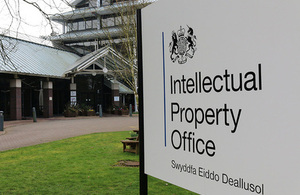News story: New taskforce to tackle economic crime
The Home Secretary and Chancellor will today (14 January 2019) jointly chair a new government taskforce which will work with senior figures from the UK financial sector to tackle economic crime.
The scale of this type of crime – which includes fraud, bribery, corruption and money laundering – is estimated to be at least £14.4 billion per year.
The new Economic Crime Strategic Board, which will meet twice a year, will set priorities, direct resources and scrutinise performance against the economic crime threat, which is set out in the Serious and Organised Crime (SOC) Strategy.
The board includes CEOs and chief executives from the banking institutions Barclays, Lloyds and Santander as well as senior representatives from UK Finance, the National Crime Agency (NCA) and the Solicitors Regulation Authority, Accountants Affinity Group and National Association of Estate Agents.
Home Secretary Sajid Javid said:
We need to take action on all fronts to target the corrupt fraudsters who are lining their pockets with dirty money and living luxury lifestyles at the expense of law-abiding citizens.
The Government is already investing millions in the fight against economic crime, but it is crucial we work closely with our financial sector partners to win this battle.
These criminals threaten the UK’s reputation as a world-leading place to do business and we have a joint responsibility to stop them.
The Chancellor of the Exchequer, Philip Hammond, said:
The UK is leading the world in the fight against illicit finance, preventing fraudsters from stealing billions from the public each year. We know more can be done which is why the Home Secretary and I are launching the first ever cross-departmental board to prevent more people from becoming victims of economic crime.
By bringing together specialists across the public and private sector, we can use the best of our expertise to maintain our status as a global financial centre.
At the board meeting, the Home Secretary will confirm that the Home Office will commit £3.5 million in 2019/20 to support work to reform the suspicious activity reports regime (SARs).
With the private sector, law enforcement and regulators, the Home Office is co-designing a new system which is more efficient and effective, and which will benefit business and the public sector.
SARs are the mechanism used by members of the regulated sectors, including the banking, accountancy, legal and property sectors to flag up suspicions about potential money laundering and terrorist financing to the NCA.
The NCA received a record number of reports last year. The number of SARs reports rose by about 10% to 463,938 during 2017-18, compared with the previous year, including a 20% rise to 22,196 in requests for a defence against money laundering.
The number of SARs reports rose by about 10% to 463,938 during 2017-18, compared with the previous year, including a 20% rise to 22,196 in requests for a defence against money laundering.
SARs reform is one of the commitments in the SOC Strategy, launched in November, which is backed by Government investment of at least £48 million in 2019 and 2020 to further ramp up law enforcement capabilities to specifically tackle illicit finance.
The Home Secretary will thank UK Finance for its commitment to SARs reform. The government is discussing with the private sector the best way to ensure this has the funding it needs. Since late 2018 the financial sector has already committed over £1 million in funding for the project.
Bob Wigley, Chair of UK Finance, said:
We want to ensure the UK is the safest and most transparent financial centre in the world. Banks already spend over £5 billion a year fighting economic crime, but the private sector can’t tackle it alone. That’s why the finance industry works closely with law enforcement and Government agencies to stop the threat and protect customers. The new Economic Crime Strategic Board will strengthen these vital partnerships.
As part of this, it’s vital that we have the best anti-money laundering reporting system possible. The industry is committed to supporting the Government in reforming the existing regime and UK Finance is currently hosting a team of industry and Home Office experts to achieve just that.
Other measures in the SOC Strategy include additional investment in the multi-agency National Economic Crime Centre (NECC) which is now operational and includes officers from the NCA, HM Revenue and Customs, City of London Police, Serious Fraud Office, Financial Conduct Authority Crown Prosecution Service and the Home Office.

